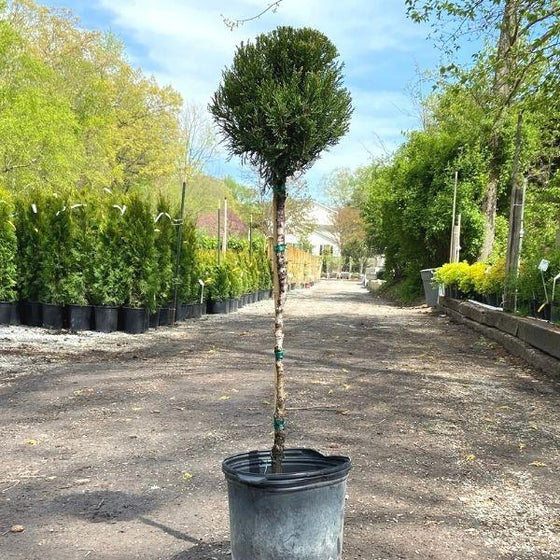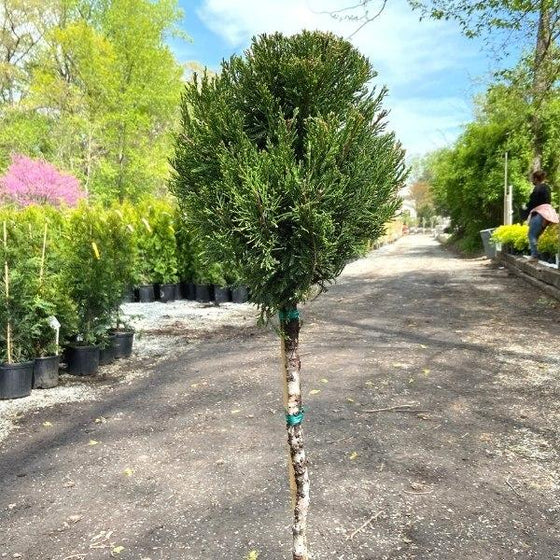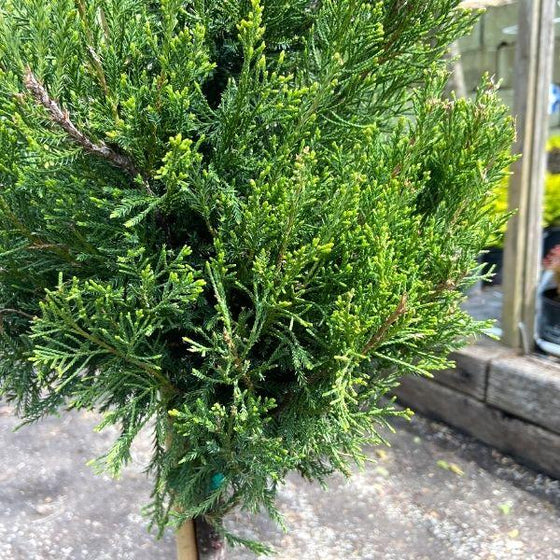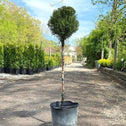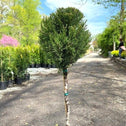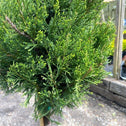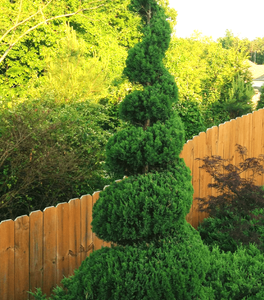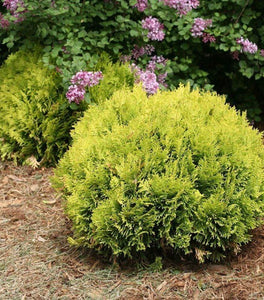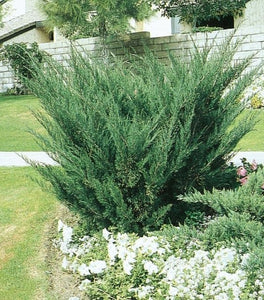Images Depict Mature Plants
Sea Green Juniper One Ball Topiary Tree for Sale Online
Sea Green Juniper One Ball Topiary (Juniperus Chinensis 'Sea Green') is a very hardy, fast-growing juniper trained to grow upright and pre-trimmed in a tall one-ball topiary style. Prune yearly to maintain the desired shape and size; Junipers require little to no maintenance once established. The Sea Green Junipers are prized in landscaping for their hardiness and brilliant bright green foliage. They keep their electric color year-round, suited for winter interest and topiary gardens. These sea green juniper ball trees make wonderful outdoor topiary, perfect for framing an entryway.
| Hardiness Zone: | 4-9 |
|---|---|
| Mature Height: | 5 to 6 feet as trained with pruning |
| Mature Width: | 2 to 3 Feet as trained with pruning |
| Classification: | Evergreen topiary shrub, upright |
| Sunlight: | Full sun |
| Habit: | Pom-Pom topiary, globe form |
| Foliage: | Mint green |
| Soil Condition: | Any well drained soil |
| Water Requirements: | Water well until established |
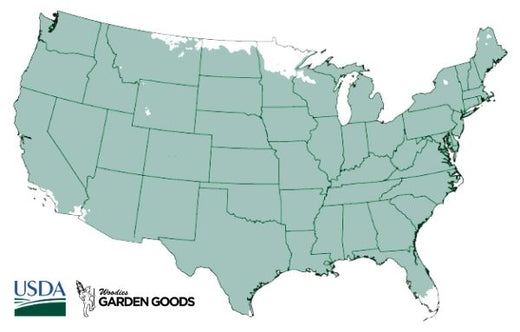
How to Care for Sea Green Juniper One Ball Topiary
Be sure to read our planting instructions to ensure a healthy and happy plant for years to come!
How do I plant a Juniper Globe Topiary?
Dig a hole twice as wide and the same depth as the nursery pot your Sea Green Juniper Topiary arrived in. Position your topiary tree so that it will not be too deep in the ground when you backfill the hole - the soil your tree arrived in should be level with the ground, and still slightly visible before adding mulch. Backfill the hole with a mix of the native soil and organic matter. Adding compost or topsoil will help add nutrients to sustain the new roots, and adding peat moss, fir bark or other organic matter will help create proper drainage so that your tree is never sitting in water with wet feet. Pat the soil gently and water the area thoroughly. Cover the area with 2 to 3 inches of organic hardwood mulch, but leave at least an inch of space around the trunk. If you want to add extra support while your topiary is establishing its root system, we recommend using a tree staking kit.

How do I prune my Juniper pom pom tree topiary?
To maintain the lollipop look of this Sea Green Juniper Topiary tree, you will need to prune it a few times a year. You can prune in a few ways, depending on the look you want. If you want a cleaner, more geometric shape, then you may carefully use a longer set of shears (or an electric hedge clipper for larger areas) and shear away anything outside of your desired shape. For a more natural look, prune by hand and select which shoots need to be trimmed individually. Start from the top and work your way down, following each extending branch and cutting it to the point where it will match your desired shape. Either way, it is better to stay conservative - it is easier to trim more than to put branches back on. Planting your tree in full sun and providing fertilizer at the right times will help encourage fuller growth within the foliage, which is ideal for a lush topiary look. Keep an eye out for any dead, damaged, or diseased branches, and remove them as far back as you can. The best time to clean the tree of any dead or damaged branches in early spring, after the last frost and before major growth begins.
How should I fertilize my Juniper Tree Topiary?
Sea Green Juniper plants grow best if they are fertilized lightly in the spring once frost has passed with a well-balanced, extended-release, fertilizer such as Espoma Tree-tone or Holly tone to provide the extra acid that junipers crave. Fertilize your juniper again in late summer to mid-fall. Either chemical fertilizers or organic matter can be used successfully with Junipers. Don't fertilize your tree after August since fall is the time for all junipers to begin preparing for dormancy. Fertilizing at this time may stimulate new growth that will be too tender to withstand the winter. Use less fertilizer for junipers in a container.
How do I water my Sea Green Juniper outdoor topiary?
Sea Green Juniper plants are considered very hardy and drought-tolerant and thrive in a wide variety of soil conditions. They do their best in loamy, nutrient-rich soil with lots of proper drainages, so that they never sit in water for too long. While your new plant is first establishing its root system, keep the soil evenly moist by watering anytime the top three inches of soil become dry to the touch. After the first growing season (4 to 6 months), you should only need to water as needed, depending on your local weather and grow zone.

